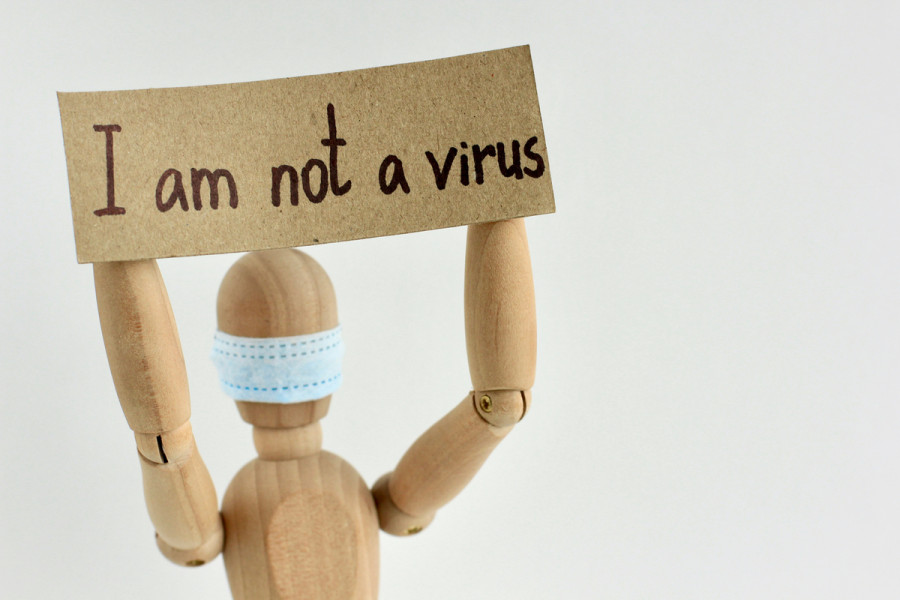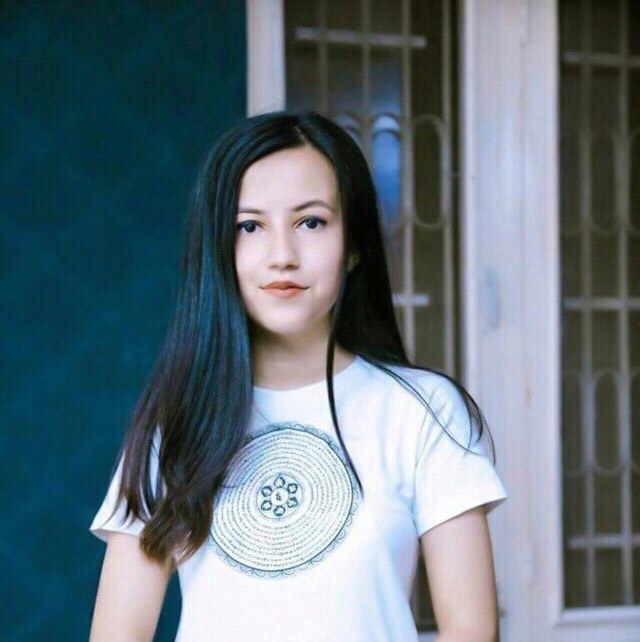Columns
Say no to coronavirus stigmatisation
Misinformation and prejudice during a pandemic may be more dangerous than the pandemic itself.
Subidha Parajuli
First identified in December 2019 in Wuhan, China, SARS-CoV-2 has seriously affected the way humans live and interact. In Nepal, the first case of Covid-19 was reported on January 23, 2020, but strict precautionary measures were only implemented after the detection of the next few cases, in late March. Even though the Cabinet decided to end the 120-day lockdown on July 21, this does not mean that the pandemic has suddenly ended. Rather, both the imposition and retraction of this shutdown have been controversial—and separate from the trend of Covid-19 infections in the country.
But the direct effects of the disease caused by the novel coronavirus is just one of a myriad of ways this virus has affected life everywhere. There is an increase in stress, uncertainty and despair, as well as a trend in stigmatising those who have been impacted terribly by the virus. The usual social ills—discrimination based on caste and creed—have now been complemented by prejudice based on the results of a virus test.
In Nepal, prejudice against health workers, patients and returning out-migrants have been heightened. Misinformation has added further challenges, which will only undermine the battle against Covid-19.
Lack of compassion
Several reports have come up highlighting prejudicial behaviour against healthcare professionals in Nepal. These are the people who work day and night for the well-being of others. But people do not seem to understand the added risk health workers are taking for societal welfare. In Udaypur—the epicentre of the Covid-19 outbreak in Nepal—healthcare workers have been at times deprived of opportunities to secure food and accommodation and are treated as outcasts. Many health workers working in urban areas of the country find accommodation in the staff quarters of government institutions, but those working in remote areas are deprived of such facilities and the situation is even direr. Medical staff working in different parts of Nepal have also been prompted to pick between their rented room and the hospital they work in due to ill-treatment by their landlords. The stigmatisation of those rendering direct medical assistance will only undermine the battle against Covid-19 whereas being humane towards them can only help us combat it.
Another problem is the stigma and ostracisation that patients with Covid-19, or those who are recovering from the disease, face. Despite the fact that such individuals are totally under medical supervision and follow proper protocols, members of the community are frightened for themselves and are ready to go any extent to prevent them from entering their common space—without caring for the sentiment of those afflicted. The dehumanisation has gone on to set a case of hysteria every time a high risk professional—be it doctor or pilot—receives a false-positive result. The Ministry of Health and Population had even stated that coronavirus infected individuals with mild symptoms can stay in home isolation. But communities have begun to show just how intolerant they can be, ignoring even science-based assurances.
Since the outbreak began, there has also been an increase in the stigma against people from abroad. Various people, especially daily wage workers who have returned, are facing a sort of social ostracisation in Tarai. We need to realise that such returnees have already had their lives unravelled due to the effects of the pandemic. They are the ones who perhaps need their kith and kin the most. Yet, after facing great shocks, they have to (rightly) stay in isolation upon their return. Hence, we need to treat both people with Covid-19 and those that are quarantined with utmost love and care. Family members of those in isolation, quarantine or treatment centres may also need additional support and counselling.
Misinformation is dangerous
We need to realise that the stigma can even propel people to hide their sickness and prevent them from getting tested for Covid-19. This will not just harm them alone but the whole community as well. Covid-19 doesn’t recognise borders, nationality, culture, race, caste, creed, colour, religion or wealth. Society’s treatment of those afflicted should come from a sense of sympathy and support, not of misdirected hostility.
Discrimination and stigma come into life by the spread of inaccurate information. In Nepal, the Muslim community, in particular, has encountered some added prejudice. There has been a rise in Islamophobia due to misinformation. Fake news has allowed for some Covid-19 cases—not particularly higher than any other grouping—stemming from congregations in some mosques to tar Muslims in general, negating all the relief the community as a whole has lent in such trying times. In Nepal, even the credible newspapers were seen exacerbating stigma in the front page against people with Covid-19, which in turn led them to receive hate comments and death threats on social media.
The novel coronavirus could affect anyone at any given time. For that reason, sharing and cross-checking of only factual data from relevant government authorities and the WHO should be prioritised. Trusted media sources must be identified. People should also be appropriately informed regarding quarantine and self-isolation and how Covid-19 actually unfolds.
An additional way of not aggravating the stigma is by being careful when choosing words to describe the virus. There is a general consensus that the novel coronavirus should officially be called SARS-CoV-2. The name of the major disease that affects those infected by the virus is Covid-19 (shortened from coronavirus disease 2019). Calling it the Chinese Virus, or Wuhan Virus, or Asian Virus only creates divisions at time humanity should be united. While the virus did originate in Wuhan, the next pandemic-causing virus may originate anywhere on earth, as previous infectious diseases have.
There are subtle and underlying prejudices even in how we address those affected by Covid-19. Saying someone is a victim of Covid-19 is plain wrong. Speaking up against prejudicial comments should be prioritised; responsible members of society must speak out and inform their peers when someone is misinformed.
***
What do you think?
Dear reader, we’d like to hear from you. We regularly publish letters to the editor on contemporary issues or direct responses to something the Post has recently published. Please send your letters to [email protected] with "Letter to the Editor" in the subject line. Please include your name, location, and a contact address so one of our editors can reach out to you.




 18.12°C Kathmandu
18.12°C Kathmandu















